Epic DSLR Viewfinder Review Part 5: Essential DSLR accessories
Jump to other DSLR viewfinder reviews:
– Letus Hawk VF Review (& comparison to Z-Finder)
– Varavon Pro Finder DSLR viewfinder video review
I have talked about many “essential accessories” for the T2i / 550D – and in fact, all the other DSLRs too – but there has been one glaring omission so far: viewfinders.
Viewfinders are easily the most important accessory for DSLR filmmaking, for two reasons: stabilization and focusing.
Stabilization – an additional point of contact
DSLRs are stills cameras, essentially still designed to take photos by watching through the mirror box viewfinder, which is not working when the video mode is on. That’s why we are stuck with the LCD display, which forces us to hold the camera in front of our faces with two hands when shooting handheld. That, however, is not a very stable position. It is in fact the worst handheld position for a camera I can think of. It introduces a lot of shake into the camera and the operator is getting fatigued very quickly.
Yes, a shoulder rig is one solution to that problem. But the much more obvious and fundamental solution to this problem is to simply use a viewfinder. As an additional point of contact with the body (apart from your two hands) it introduces a lot of stability. To be honest, I only realized how much difference it REALLY makes once I used a Z-Finder for the first time. You can make a comparison and shoot the same thing with and without a viewfinder, and I can assure you that there will be a huge difference in the recordings. I think apart from the increased stability you are also more aware of any shaky movement because you see everything in great detail when using a viewfinder.
So how do these devices work? It’s quite a simple principle, actually. Due to the fact that the “real” optical viewfinder on these cameras can’t be used for video, the accessory manufacturers had only one option: to stick a loupe onto the LCD. That might sound very low-tech, but it really isn’t that simple to design such a viewfinder that works well for these cameras. In fact, almost every single viewfinder on professional video camcorders nowadays is ‘only’ a magnification device on top of a LCD screen (and I’m talking about ‘real’ video camcorders, not DSLRs). This is most obvious on cameras such as my Sony EX3, which uses a viewfinder that can be flipped away when necessary to reveal the screen for shooting from angles where the viewfinder wouldn’t be feasible.
Focusing & blocking out light
Equally if not more important than stabilization is of course focusing. One of the main factors why we adore the image we get out our DSLR cameras so much (and why we even bother shooting video with stills cameras) is the incredible shallow depth of field – something that is still unattainable with your average video camcorder, even with a very expensive one (you would have to use equally expensive 35mm adapters to get comparable results).
Now that we finally have what we have been asking for for years, it turns out focusing is really a pain in the behind. Apart from the stills lenses that only need an ever-so-slight barrel movement to throw you off focus, you have to watch the screen VERY closely to judge focus accordingly. When you are shooting with a wide open aperture on a fast lens it becomes almost impossible. In case you wonder why you see so many DSLR videos on Vimeo that are not quite in focus, it is mainly for this reason. It’s painfully hard, especially for beginners.
Viewfinders are the solution. They magnify the screen so you can more easily judge if you’re in focus or not. Some people say they just magnify pixels and that it’s a pixel fest with these loupes – yes and no, it depends on the magnification factor and the resolution of the LCD screen of your DSLR. And also, what would be the alternative? As I said, ‘real’ camcorders use the same technique with their viewfinders, and you don’t get full resolution when you attach a monitor on most DSLRs.
By the way, I find it quite ironic that the Canon 5D Mark II that started the DSLR revolution – still the only one with a full-frame 35mm sensor – has the worst LCD resolution of all the video-capable Canon DSLRs currently on the market. Of course, it was the first one, therefore technology has since evolved and Canon builds better LCDs in every new model. (Yes, the T2i/550D, being the least expensive Canon HDSLR, currently sports the LCD with the highest resolution.)
Anyway – the camera with the worst LCD has the shallowest depth of field, which makes focusing with the 5D Mark II especially hard, even with a viewfinder. It is an absolute necessity – I cannot stress it enough. If you get only one accessory for your Video DSLR, get a viewfinder.
Viewfinders Review
First and foremost I have to thank B&H Photo & Video for the bunch of viewfinders they shipped over to me from New York. B&H are truly the most responsive, well-stocked and most professional camera equipment store I have ever come across – a shame they don’t have stores here in Europe, their customer service would seriously have no competition here. If you consider buying any of these viewfinders, please do check out their store and please use one of the links on my blog – the tiny commission I make at least helps to pay the server bills. And it keeps B&H happy, so I can keep those equipment reviews coming when they lend me the gear. Thanks for your support.
B&H Photo & Video sent me all the DSLR viewfinders they had in stock. You will notice that some are missing, but the most important ones are there.
These are the ones I got to test from B&H:
• Cavision LCD viewfinder set for 5D Mark II
• Redrock Micro microFinder Loupe Accessory Kit
… and last but not least a
• Z-Finder Pro 2.5x (borrowed from Philip Bloom)
UPDATE: Check out my DigiFinder.pro review in this separate post!
While assisting Philip on set of Lucasfilm’s RED TAILS last month in Prague, I was able to use his Zacuto Z-Finder Pro 2.5x as often as I wanted. I also got all of the above viewfinders with me and tested them extensively on my behind-the-scenes shoot, which was the ideal testing ground due to lots of on-and-off run-and-gun shooting, very much like in any real-world situation when covering an event or something similar where you have to be able to react quickly and get the shot handheld at a second’s notice.
Zacuto Z-Finder Jr.
After its hugely successful original Z-Finder and the much-improved Z-Finder 2, Zacuto announced a new generation of Z-Finder viewfinders a while back. One entirely new addition to their lineup is the Zacuto Z-Finder Jr., a lower-priced model at $265.
It differs from the Pro version in several ways: It doesn’t feature a diopter that allows people who don’t have perfect vision (and don’t use contact lenses) to adjust the focus. If you need the focus adjusted, extender frames are used to find the right distance for you (although this method can never be as accurate as a diopter). The Z-Finder Jr. also doesn’t feature the anti-fog coating of its bigger sibling. And last but not least, it uses a completely different mounting mechanism – a metal bracket that is sandwiched between the camera and a tripod baseplate.
The good:
Looking through the Z-Finder Jr. is just a joy – as with all Z-Finders, actually. It’s sharp from edge to edge and the magnification (2.5 x) is perfect for getting critical focus. The first time I used a Z-Finder was really a revelation for me, and I really mean that – all of a sudden, you’re able to get pinpoint focus on a wide aperture, whereas before that it was sometimes some kind of guessing. Furthermore, as mentioned above, the added stability is essential – it also helps that you are much more aware of every camera movement due to the complete isolation from your surroundings due to the perfectly shaped rubber eyepiece.
Of course I found it still most difficult to focus the 5D Mark II, partly because it has a lower resolution screen as other Canon Video DSLRs, partly because the depth of field is even shallower due to its huge sensor (when using a fast lens on a wide aperture).
The-not-so-good:
While the Z-Finder Pro (reviewed below) offers anti-fog coating, the Junior doesn’t. This is a really big deal if you are changing shooting environments on a shoot– say, an air-conditioned office and an outside parking lot on a hot day.
If you are wearing glasses, the missing diopter correction might be a problem. I’m using contact lenses and had therefore no problem with the Junior in this regard.
There is much to love about the built quality of the Z-Finder Jr. itself – but regarding its metal bracket, not so much. It strikes me as a quite awkward design to be honest, and would find it hard to believe that this thing came out of the same company if I didn’t know it in fact did.
It is impossible to use the camera for stills shooting using the camera viewfinder (the one that doesn’t work in video mode) when the bracket is attached to the camera. It is likewise annoying to have that thing in front of your LCD screen when shooting stills.
The bracket also doesn’t seem to fit perfectly around the Z-Finder Jr. – it is a bit loose and therefore tends to move. I was shocked that after a few minutes of using it, it had scratches everywhere the metal bracket rubbed against it. There’s really not much good to say about this bracket – I simply think it is not a very good design and needs to be rethought.
Luckily, Zacuto also supplies an adhesive mounting frame with the Z-Finder Jr. that enables you to forget the metal bracket entirely – you will never look back. I think they introduced new mounting mechanisms with the new Z-Finder line because some people seemed to have problems with attaching a frame permanently to their camera. All the people I know who use the Z-Finder never had a problem with this mounting method, and I still think it is the most convenient design. If you need the Z-Finder, you put it on – if you don’t, you take it off and use the LCD directly or the camera viewfinder for taking stills, very easy and straightforward, and you don’t need to attach anything to your camera(s), once you have gone through the procedure of attaching the adhesive frame permanently.
If you are using the Canon T2i / 550D like I am, be sure to read Zacuto’s special instructions for installing the adhesive frame though on this camera – its proximity sensor needs some special attention.
While the Z-Finder Jr. is Zacuto’s entry level model, it is still not exactly cheap at $265 – but with its 2.5x magnification, the Z-Finders in general still offer simply the best way of determining critical focus. That’s why other viewfinders have a hard time in comparison. Using the adhesive mounting option, you should become a very happy shooter. Also, you must not forget Zacuto’s unbeatable lifetime warranty policy that covers even accidental damage!!
Click here to buy the Z-Finder Jr. at the Zacuto Store
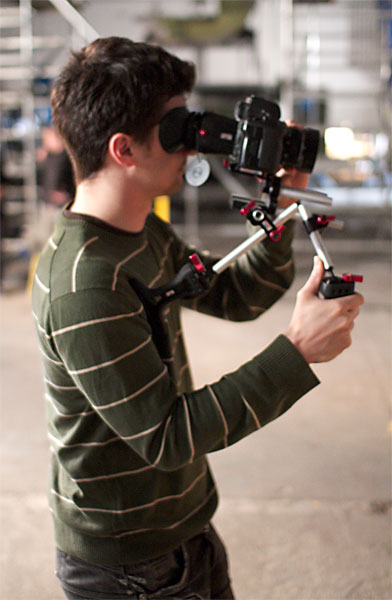
Me on Lucasfilm's RED TAILS set using a 5D Mark II with a Zacuto Z-Finder Pro 2.5x & a Zacuto Cross Fire (without the follow focus in this photo)
Z-Finder Pro (2.5x magnification)
The Z-Finder Pro is available in two versions, with 2.5x and 3x magnification. To be honest, I found the 3x magnfication of Z-Finder v2 too extreme as it was impossible to view the entire frame at once – I found myself looking around all the time and I ended up with some shots that showed more than what I had in mind when shooting it. So I was very relieved when I heard that Zacuto was going to make a 2.5x version of their otherwise superb Z-Finder. Luckily, I was able to use this version extensively on Lucasfilm’s RED TAILS set in Prague last month, where I was assisting Philip Bloom and shooting lots of behind-the-scenes.
All of the positive stuff I already said about the Z-Finder Jr. is true for the Z-Finder Pro as well. The image quality is great and it truly feels like you are standing in front of a huge HDTV. It features a turnable diopter for perfect adjustment of your eyesight.
Zacuto introduced a new mounting mechanism with the new version of the Z-Finder Pro: a mounting frame attached to one of their Gorilla baseplates, held in place only by pressure. This will please everyone who had a problem with the sticky frames (I hadn’t, and they are still available and compatible with the new Z-Finders) and will please everyone who plans to use one of Zacuto’s Gorilla Support Rigs: They share the same baseplate.
To me, the really big innovation with the Z-Finder Pro is its anti-fog coating. Somehow, they managed to come up with something that prevents the viewfinder from fogging up – which happens frequently if you move from colder into warmer locations or if you simply sweat approach the eyepiece too quickly. Before I saw this, I thought this is a physical impossibility to make – but somehow, they pulled it off! It might seem like a minor issue for beginners, but this is really a timesaver especially when you are on a run-and-gun documentary shoot or something similar.
At $395, this is by far the best DSLR viewfinder solution on the planet. It is pricey, but worth it, as all Zacuto products come with lifetime warranty. They even cover “accidental” damage! This is something unheard of in the industry!
(If Sony had that, I would have my EX3 back by now, 15 weeks after it was bricked by a faulty firmware update that Sony supplied and won’t cover with its PrimeSupport warranty – but that is another story entirely.)
Click here to buy the Z-Finder Pro at B&H Photo & Video
Click here to buy the Z-Finder Pro at the Zacuto Store
Cavision LCD viewfinder set for 5D Mark II
The Cavision LCD viewfinder is custom-made for the 5D Mark II. It won’t work with other Canon DSLR cameras out of the box simply because of the position of its baseplate that attaches the thing to the camera. It is possible to use with another camera if you sandwich in some additional plate. There is a spacer plate available that allows it to work with the 7D and the T2i / 550D as well. (Yes, this plate works with both of these cameras – according to Cavision’s website). The magnification factor seems to be comparable to the Z-Finder Jr.
The Cavision offers a very rigid design that looks like it will hold up well in daily use. I was sent the viewfinder with the attached swing-away unit for review (which is currently unavailable but sold separately). The swing-away unit allows the viewfinder to swing away to the right when you don’t need to use it – say, for example, on a tripod or simply when taking stills.
To cut a long story short, I had some serious troubles when using the Cavision viewfinder on the 5D Mark II:
First of all, the rubber frame that is supposed to seal the thing to the LCD does not fit tightly – out in the bright sunlight you can get sunlight into the viewfinder from time to time, which is very annoying (and blocking out sunlight is of the reasons why we needed a viewfinder in the first place).
Second and much more importantly, the Cavision LCD viewfinder has some massive barrel distortion going on at the edges. In fact it is so bad that I find it impossible to focus on anything that is not in the center of the frame – and that, to me, is simply unacceptable. Sorry Cavision, but this is a fatal flaw. In direct comparison, I thought at first that my Cavision unit is broken – but after reading some comments on forums across the web, I know I’m not the only one noticing this massive flaw.
On the upside, it has to be said that at $169.95 it’s quite a bargain for its built quality. (Add another $30 for the spacer plate to get it to work with the T2i or 7D.)
Cavision LCD viewfinder set for 5D Mark II at B&H Photo & Video for $169.95
LCDVF DSLR viewfinder
The LCDVF DSLR viewfinder was invented by Tõnis Liivamägi in Estonia, and due to high demand in their product, his company has grown quickly. And I have to say there is a good reason for that: it is a really well thought-through product. It feels more plasticky than the Z-Finders, but still not bad. It is longer and slimmer than the Z-Finders and comes with a lanyard and a really comfortable soft eye cup that blocks out light perfectly. The LCDVF offers no diopter correction whatsoever.
It is also supplied with two magnetic frames – yes, you got that right, the LCDVF is attached to the DSLR using magnetic frames. Understandably, many people have issues with magnetic parts in close proximity to electronics. However, it is not an issue according to Tõnis: he personally explained to me that their magnetic frames are made of carbon steel which is then galvanized and powder coated. The frames act as a shield against the magnetic field, which acts as a mounting mechanism in return. The magnets are only four tiny strips of metal that you can see inside the LCDVF skirt – the magnetic field is directional and designed to die away almost completely when mounted onto the metal interface frame. (It is recommended not to leave the viewfinder on the camera for extended periods of time though, i.e. when not using it.)
Like with the sticky frames for the Zacuto Z-Finders, you can easily use it on multiple cameras if you have more than one. The LCDVF comes with two magnetic frames, so you’re already set for two cameras out of the box.
The image you see through the LCDVF is edge-to-edge sharp and using it feels very natural due to the comfortable soft eye piece. Focusing works fine with the LCDVF, though at some points, its 2x magnification might be not enough to focus properly. Sometimes, I had some troubles when shooting at f/2.8 or even 1.4 on set with it. The Z-Finder’s 2.5 x magnification makes a difference, albeit it can get a bit pixellated on some lower resolution screens (like the 5D Mark II’s).
On the other hand, it’s much easier to judge the framing without being forced to move your eyes at 2x magnification.
At $179.95, I think the price is right for this product. A lanyard and a nice pouch are included. I ended up using it a lot on set of RED TAILS, along with the Z-Finder Pro. The Z-Finder Pro is better in many ways, but for a budget setup, I think the LCDVF might be the perfect companion. Its magnetic attaching mechanism is very comfortable when put in practice – I left the LCDVF tangling around my neck when I didn’t use it, and it attaches with a snap and sits tightly and securely on the camera.
Click here to buy the LCDVF at B&H Photo & Video for $179.95
Germany/Austria/Switzerland: LCDVF on Amazon.de for EUR 129,99
I was also just informed that LCDVF recently released a new viewfinder, the LCDVF3/2. It is the only viewfinder that is purpose-designed for the 3:2 screen found on the Canon T2i/550D/X4. They even reduced the price by 20% compared to the “classic” version of the LCDVF. I expect to receive a demo unit soon and will update this blog post with a review of the LCDVF3/2 once I got my hands on it!
Hoodman HoodLoupe 3.0
The Hoodman HoodLoupe has been around for a while and wasn’t originally designed as a viewfinder for DSLR cameras. The problem is that you feel that it isn’t quite right at any moment you use it with your camera. Costing only $114.95 in the “cinema kit”, it is by far the cheapest of all the viewfinders I tested. But if you ask me if I think it’s worth it, I have to say no.
First of all, it comes with an atrocious mounting mechanism using straps that go around your camera. It is very annoying to fiddle these straps around your camera every time you need to take the HoodLoupe off your camera and put them on again. They tend to touch buttons unintentionally and they rip easily. When I tried to take it off the first time, one of these straps already ripped.
Secondly, the image you get with the HoodLoupe is really not that useful to judge the focus: It offers no magnification whatsoever. Furthermore, depending on how you have to adjust the built-in diopter (turnable eyepiece), you often aren’t able to see the whole frame due to the really long rubber eyepiece that crops off the edges.
At $114.95, it’s hard to complain about the HoodLoupe, but don’t expect it to do miracles. It’s better than nothing though – and comes with a nice case.
Hoodman HoodLoupe “Cinema Kit” at B&H Photo & Video for $114.95
Germany: HoodLoupe on Amazon.de
UK: HoodLoupe on Amazon.co.uk
There is a Cinema Kit Pro of the Hoodman HoodLoupe on the market that is said to resolve most of its issues – it comes with a different mounting mechanism (the HoodCrane) and a new eyecup, called the HoodMAG 3.0, which offers 3x magnification. I didn’t have a chance to test it, but people keep telling me that it makes the whole thing so much better.
Hoodman Cinema Kit Pro for $209.99 at B&H Photo & Video
Redrock Micro microFinder Loupe Accessory Kit
Redrock Micro is a camera accessory maker that doesn’t have its own DSLR viewfinder – as far as I know. They produce all sorts of camera accessories and I have some of their stuff for my larger video camcorders and love it.
But the reasoning behind this piece of kit is beyond me: It’s a metal bracket designed to hold the Hoodman HoodLoupe in place – an alternative to Hoodman’s own rubbish straps. The problem with this is that it bends easily and doesn’t fit well at all. The hole for the screw on the bottom isn’t in the right place for any of the Canon cameras – it seems like this was for a different mounting solution altogether. You can still sandwich it between your camera and a Manfrotto-style tripod baseplate, but you will have to bend it and twist it to make it work properly. If you get it to work, you will find it’s impossible to remove the HoodLoupe from your camera without taking the whole bracket off again. Terrible.
At $39.50, this little piece of aluminum is a big disappointment. It feels like a product that they felt “had to be done” only because RedRock Micro doesn’t have their own viewfinder solution. The rest of their stuff is usually of great quality and well thought-through, but this isn’t.
Redrock Micro microFinder Loupe Accessory Kit at B&H for $39.50
I was contacted by Brian Valente from Redrock Micro regarding their microFinder Loupe Accessory Kit. I would like to include his e-mail (with his permission of course) in its entirety to avoid any misunderstanding:
Hi Nino
Brian here from Redrock. I was a little confused about your review of our loupe attachment and wanted to offer a few clarifications. Most importantly, this is not a loupe itself, just a loupe attachment. It’s designed to be an inexpensive way to attach a hoodman loupe that is way better than their straps and a fraction of the total cost of other offerings.
“The hole for the screw on the bottom isn’t in the right place for any of the Canon cameras – it seems like this was for a different mounting solution altogether.”
First, The hole has nothing to do with how to mount a loupe – it’s part of the manufacturing of the accessory so you are correct that it doesn’t match to anything, but also that it’s not supposed to.
“you will have to bend it and twist it to make it work properly”
If you are trying to mount it incorrectly through the hole as you suggested above, then you probably have to bend it to work and I imagine it ends up a disaster. Mounting it correctly (i.e., not through the hole) will probably resolve any issue here. Also we ship 2 versions of the microFinder loupe, once specific to the 5D and one specific to the 7D (there are other cameras that share similar setups so it’s not just for those) and the latest versions ship with rigid metal attachments, so it’s a lot better than your review seems to suggest.
I hope that helps.
Cheers
Brian
Final thoughts
If you have a budget setup like a T2i / 550D, I would either get the Z-Finder Jr. (using the adhesive mounting option) or the LCDVF. Both are great solutions. While the Z-Finder Jr. is a bit more expensive, you get an incredible lifetime (and “accidental damage”) warranty and a larger magnification that is perfect for focusing.
But if you want something even more rigid that is expandable and also particularly pro-looking, get the Z-Finder Pro. I prefer the 2.5x version over the 3x, but I guess that is a matter of taste. Its anti-fog capability alone is worth the additional cost in the long term.
Please don’t forget buying through the links on this site if you want to support this blog and keep my reviews coming. Thank you!
Get all of them at B&H Photo & Video:
• Cavision LCD viewfinder set for 5D Mark II
• Redrock Micro microFinder Loupe Accessory Kit
DISCLAIMER:
After doing all these tests and using some of their other gear, I was very convinced of the Zacuto stuff and would recommend it to anyone – that’s why I became a Zacuto affiliate. Please do not think that this will be a conflict of interest – as you have seen, I will always tell you what I like and what I don’t like about a product (like I absolutely don’t like the bracket of the Z-Finder Jr.), no matter what brand. I think that Zacuto makes overall very good products and has customer service beyond comparison, that’s why I decided to go with them and try to make some commissions from referrals to help keep this blog running.
Jump to other DSLR viewfinder reviews:
– Letus Hawk VF Review (& comparison to Z-Finder)
– Varavon Pro Finder DSLR viewfinder video review
-
Great review Nino, thanks for putting in the time to do it. One question, I am going to purchase the Zacuto Z-Finder Pro 2.5x, but was wondering, would the Gorilla baseplate work with the T2i/550D knockoff battery grip your just reviewed? Again, thanks! Rod
-
Superb, extensive write-up.
I actually ordered a LCDVF last night from the glidetrack site…I can’t wait. There’s no denying it’s an essential and underated piece of kit. It’ll make my life so much easier!!!
Cheers -
Amazing review – thanks for this!
I’m planning to buy a viewfinder for my 550D and came across the “LCDVF 3:2” which is even cheaper than the original LCDVF. Do you know if it comes with the soft eyecap? Couldn’t find this information on the web.
Thanks again,
jonni -
Even after your review Im torn! I was set on getting a Zacuto Pro 2.5x but I read it isnt the best for 550D/T2i in terms of attaching. I read the base plate is a waste and doesnt really suite the 550D..so that makes me worried..at the same time I’ve read the LCDVF fits the 550D’s 3:2 aspect screen perfectly..But I’m worried that 2.0x magnification isn’t enough, as well as the lack of the diopter. I dont wear glasses or contacts and my vision is pretty good. What should I get? The LCDVF or the Zacuto pro? I dont mind saving an extra month to get the zacuto but with what I read about it fitting the the 550D well is making me hesitant..Anyway, thanks for your review Nino. You rock.
I plan on getting the generic battery grip as well so Im curious what the better solution is for that combo..Zacuto or LCDVF
-
Nino.
thanks for the great and honest review. The only issue I have is that you provide buying links for products that you clearly don’t recommend.
I feel a bit of a lack of integrity here.
Other then that, great review.
Thank you. -
Just wanted to comment about the LCDVF and their service. I had a problem with one of the magnets coming loose on my unit. I emailed them and within a week had a replacement unit at not cost, no questions asked – from overseas! Amazing service. I don’t know about a lifetime warranty, but you can feel safe buying an LCDVF.
And I agree- it’s fantastic. I actually use the old version on my t2i and while it doesn’t fit perfectly, it doesn’t bother me at all. Thanks for the review!
-
Thanks so much for a great roundup, Nino. My experiences corroborate your feelings on the Cavision unit:
-
Wow, the added LCDVF 3/2 looks like a thing to go. Cheaper than the LCDVF and a perfect match for my 550d… Maybe I’l get one, as the new Zacuto Thingy announced will need to save a lot of bucks. At least I think so…
Cool Post. Nice that someone does this things.
-
The Hoodman had 3x magnification lens that can be used with it
-
Thanks for taking the time and effort to review all of those viewfinders, Nino. Great job!
I picked up a T2i/550D soon after it was released, partly thanks to the reviews and trial-runs that you, Philip Bloom and others were kind enough to share. I’m using it as a 2nd video camera as well as my primary still camera, so one of the accessories I immediately bought was a Z-Finder 2. I can’t say enough good things about my Z-Finder. It works brilliantly and I’ve come to consider it an essential part of my kit. And I’m with you about the adhesive frame mount. Once I got over the idea of having to stick that frame onto the back of my camera, I found it a great design for allowing me to quickly pop the Z-Finder on and off.
Cheers!
Druu
Bite Me TV -
Ordered a LCDVF for use with EOS 5d mkII today via http://www.enjoyyourcamera.com as my camera-dealer could not find a distributor in Europe / Austria. Quite puzzling – company from Estonia shipping equipment only to USA or Asia.
Thx for the review.
A. Pecher -
Very nice overview!
I have Toni’s LCDVF and am generally very happy with it. One of the frames came lose and I got 2 spares sent in less than a week. He’s not the quickest to reply to emails out of unknown reasons but he does deliver the goods. The magnetic snap (introduced first by Apple’s power cable snap on) is genius!What I miss dearly though with the LCDVF is an adjustable diopter – I have to use reading glasses to get a sharp picture and that clearly sucks – too bad.
ps: I’d call it a (slight) minus that none of the other manufacturers supply an eye patch respectively offer a way to attach one. An oversight in my book.
pps: I understand the need for monetary rewarding links – your efforts should be rewarded, really. But please, do not become another Philipp Bloom – nice guy or not, he’s a friggin’ advertising christmas tree – milking the DSLR wave endlessly. Pretty aweful ;-(
-
Loving the site and blog Nino, great stuff.
Do you have affiliates to buy from over here or just the US? -
I bought the H-LCKIT Hoodman Cinema Kit from my local camera store for 100 even. The straps are not ideal but they worked very well when adjusted and secured properly. As for the magnification, I don’t really get that. I don’t know if the included HoodEYE 3.0 is a magnifier but I didn’t have any problems focusing. The eye piece did fog up a bit but a quick swipe with a tissue took care of that.
For a hundred dollar the results are amazing. Secondly, to be fair, you should review the mounting accessories and magnification of the Hoodman of the cinema kit pro. The price will go up but then you will have an apples to apples comparison.
http://www.hoodmanusa.com/prodinfo.asp?number=HCKP, This kit comes in 60 bucks cheaper than the Jr.
-
Wow Im so glad I check this site daily! That Letus Hawk looks amazing!! I hope it gets a good review because I’d totally buy that over a Zacuto based on looks alone…Lucky man Nino! get that review up asap 😛
-
Have you seen the incredible EUR 49.90 DigiFinder pro ? I think it is not shipping yet, but I will be very curious to see the reviews on that one.
-
Nino – thanks for the great review, it’s very helpful…
Still can’t make up my mind though! I was torn between the Zacuto (a bit expensive though) and LCDVF. That Letus looks pretty nice though… any update on when you’ll have a review, or initial thoughts?
One question regarding the Zacuto Pro and Letus type base-mounting bracket. How easy is it to remove the viewfinder quickly? I’m primarily a stills shooter who might want to switch quickly between shooting stills mostly, and occasional video. Would the LCDVF with its magnetic plates be better for that do you think?
-
Hi Ben,
I own the LCDVF3/2. For me, it’s just perfect for the 550D/T2i. They have changed the soft eye cup in the new Version. It feels very comfortable. It has a 2,8x magnification! If you like to shoot stills, you just put the LCDV away and after it put it on. It’s just a matter of one second 🙂 I think it is the easiest way of connecting a ViewFinder to a cam. And the Price is a real bargain, if you ask me.
Btw: Thank, Nino for your great Reviews and Articles!
Greetings
Markus
-
-
Nino,
Keep’em coming! I really enjoy reading your articles…you must be out there enjoying the European summer. Think of us freezing Antipodeans who are unwilling to venture out and are saving up for a 550D to then finally go out and shoot things 🙂
Go Karli, uh, Nino, go!
-
Hello Nino,
Great review and very helpful. I do have a question about Battery Grips. I have a 5D Mark 2 with a BG-E6 Battery Grip. The LCDVF seems like the best option with a grip attached. But in a comment response, you mention an adhesive frame for the Z-Finder Pro. Does the adhesive frame come with the Z-Finder Pro? Or is that something that must be purchased separately? And if purchased separately, where does one aquire said adhesive frame?
Thanks,
JT -
Hi Nino, love the blog.
Have you used the Glidetrack viewfinder, i’ve heard positive responses to it from a few people.
-
Nino, again GREAT blog!!! Thank you for all the info you give to the community! Much appreciated!
We need help with sound for our T2i also 🙂
Do you plan to have a blog entry for sound solutions anytime soon?Peace, Love and God Speed!
-
Hi Nino,
Your time spent reviewing all of these finders is greatly appreciated.
I was wondering if you know if it’s possible to use the Zacuto Anti-Fog Protective Cover Upgrade Kit with the Z-Finder Jr?
Thanks again, Nino.
Have a great day.
-
The Hoodman Cinema Kit (with Hoodcrane) rocks for about $200. It fits on any camera, and only needs to be adjusted once – and can swing away during a shoot. The entire LCD is clear and visable, it has a dioptor, and one can use it at either 1X or 3X magnification.
-
I’d like to subscribe to your valuable RSS feeds.even so i can’t come across any here.Do you could have honest RSS feeds to become used?a lot of,Anna
-
Great blog, wish I had come across it before I purchased the Hoodman Hoodloupe viewfinder 🙁 very poor, straps broken already 🙁 what would you recommend on a small budget
-
The DigiFinder Pro is probably the cheapest out there. Starting at $59 from this website: http://jag35.com/new/products/digi-finder-pro/ You can read the full review by Nino on on this page:
http://ninofilm.net/blog//2010/08/08/digifinder-pro-viewfinder-for-dslrs-review/
-
-
Great blog. I’m new to all this video DSLR stuff, and a Nikon user about to pick up a D7000 in the next couple days. I will only be doing occasional video. Are any of these viewers available for the D7000? I know these LCD displays are not universal.
Thanks so much.
-
zacuto sin duda alguna
-
Hey Nino,
I just did my research on a low budget VF and also came up with the LCDVF. But then I found this:
http://www.genustech.tv/viewfinders/genus-loupe-viewfinder.html
and bought it immediately cause it has adjustable diopter and it’s cheaper.
What do you think about the Genus G-LV?
Best
Simon -
Hi Nino, Are you familiar with the VF-2B Proaim Viewfinder? It looks very similar to a Zacuto, but it’s a third of the price.
http://www.hdvshop.com/store/product_info.php?products_id=276 -
I like your site’s information and all and i enjoy the threme structure and the visuals but maybe it needs a new style, its been awhile, anyone have any suggestions?
-
I bought the LCDVF for my Canon 600D/T3i (Firmware 1.0.1.) and I was very satisfied except for the fact that it messes up the sensor inside the lcd-screen and turns it off after a few seconds making it unusable for DSLR filmmaking and makes photography very annoying. Unfortunately there doesn’t seem to be a solution for this problem so far, so I had to return it.
LCDVF + 600D/T3i = NOGO
-
i’m waiting that the proaim’s viewfinder arrives at home… a friend of mine told me that in viewing is the same as the Zacuto, obviously the material is different… the p.aim’s is more cheaper. But i prefer to save money for optics etc etc.. if this VF do the same work of the Zacuto’s one.
-
Has anybody heard of the GGS optical viewfinder, 3.0X ?
-
I bought the Zacuto Z-finder pro 3x and the mounting plate doesn’t fit exactly on the lcd screen and there is no room to use the hex and move it to the left. Do i need to buy a different mounting plate for the 5D Mark II? The box says it should work.
-
Look at the positive!
-
try to find more positives.

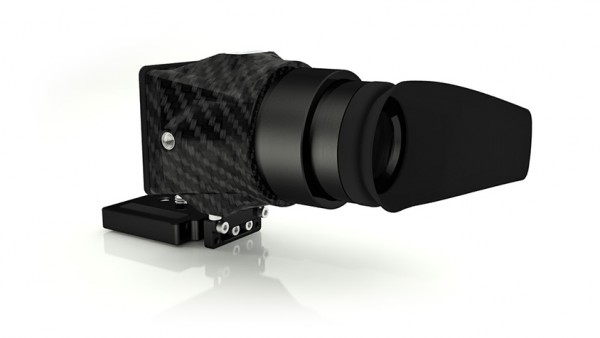
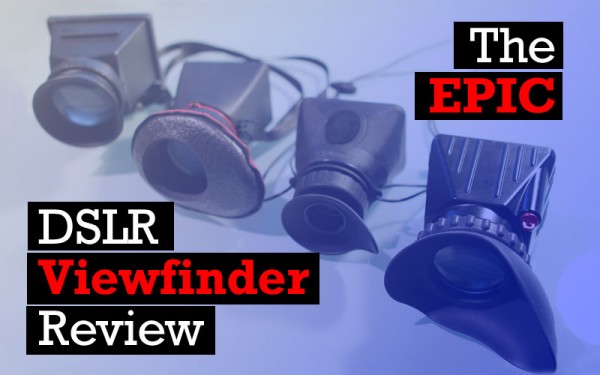

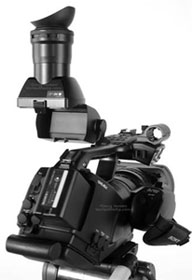


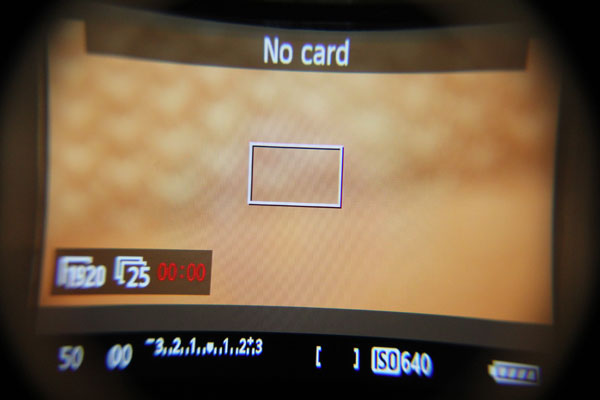


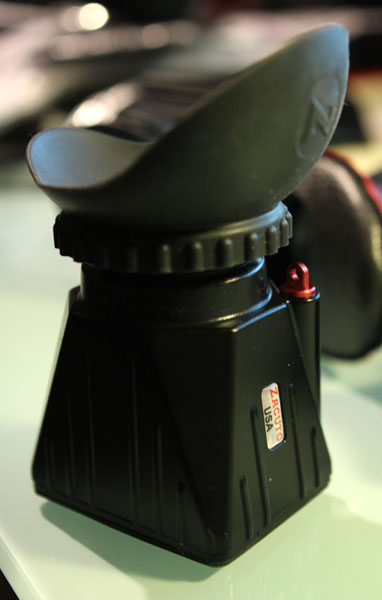
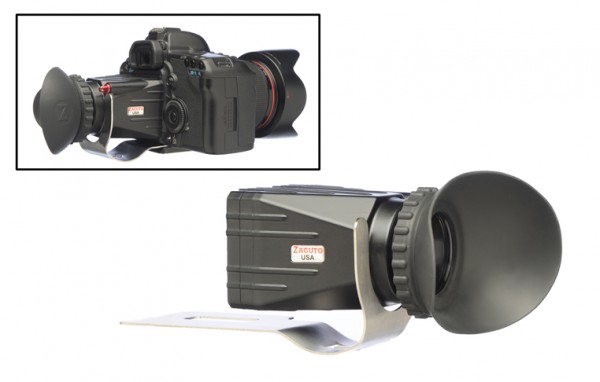
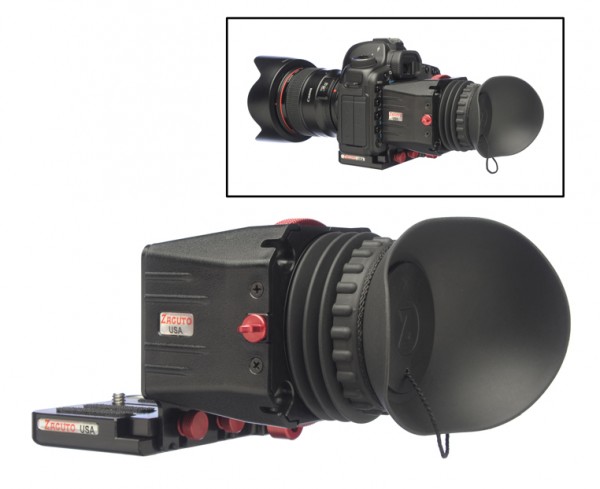
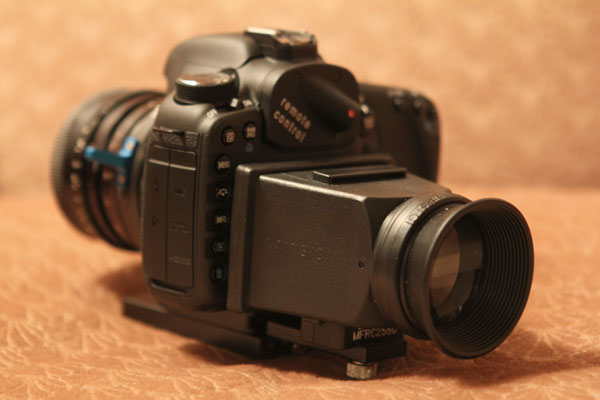
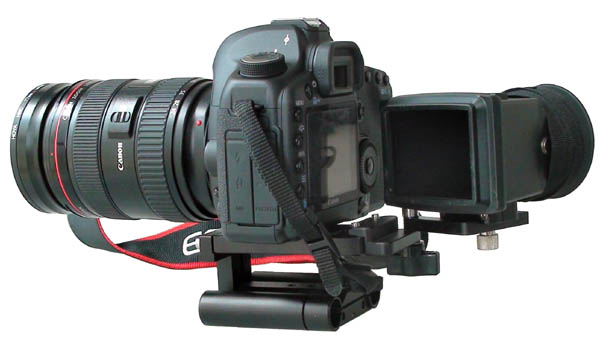
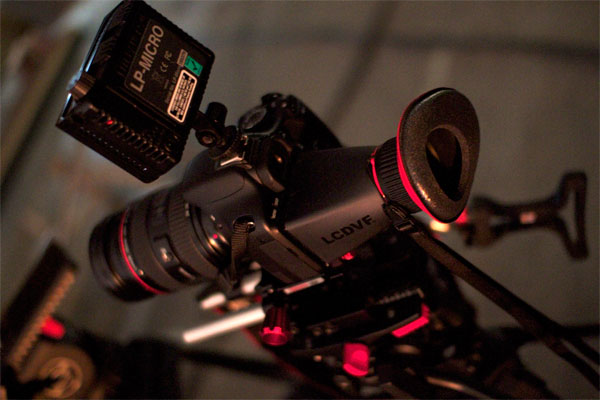


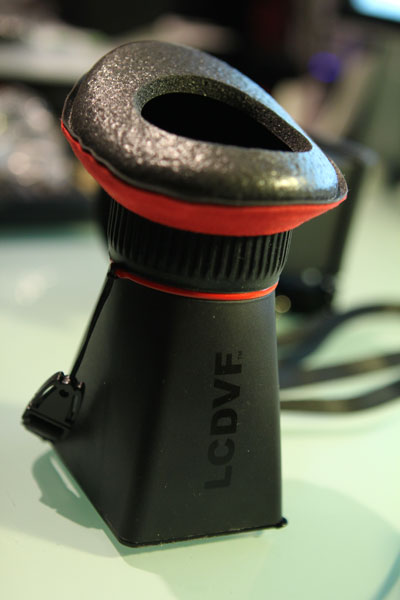
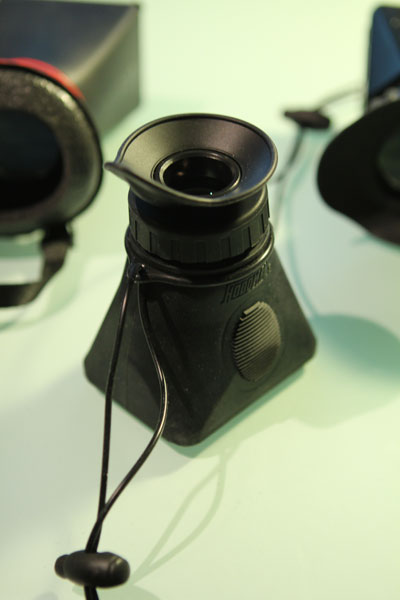
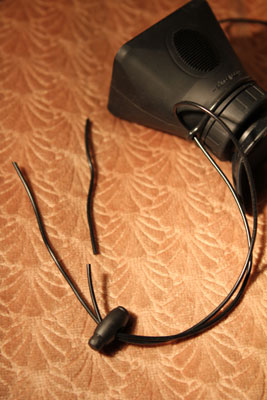
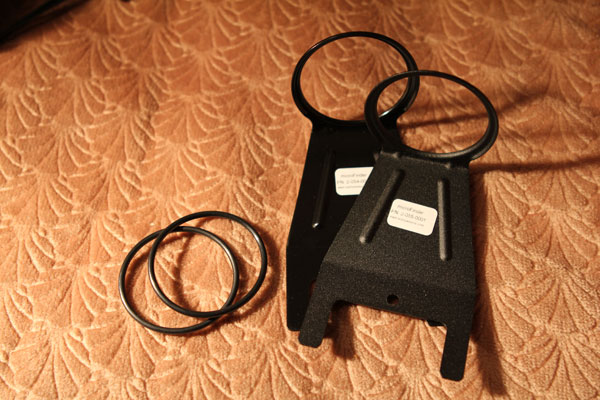



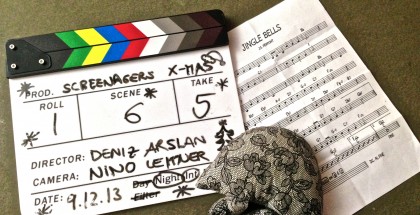
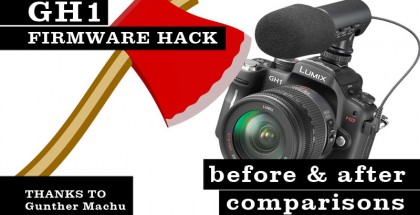
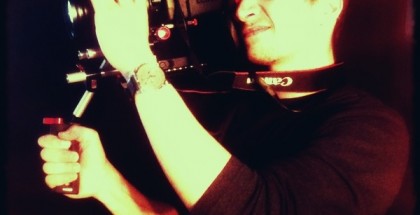
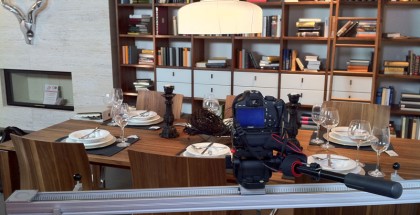

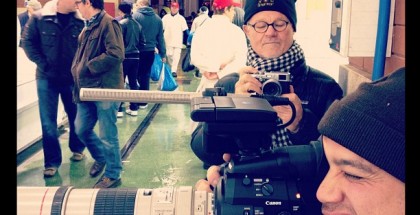














Comments